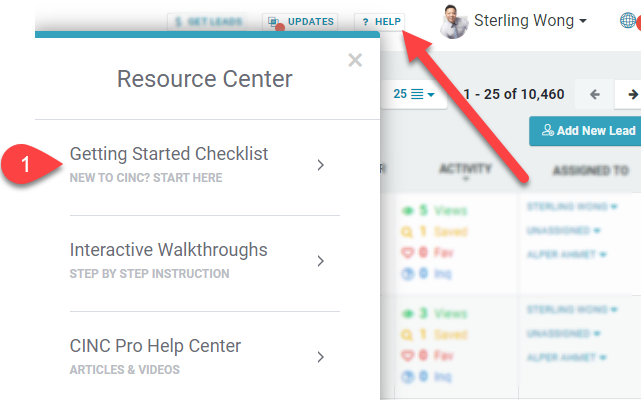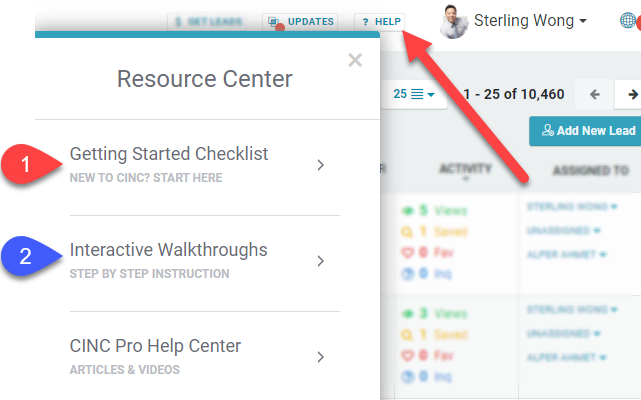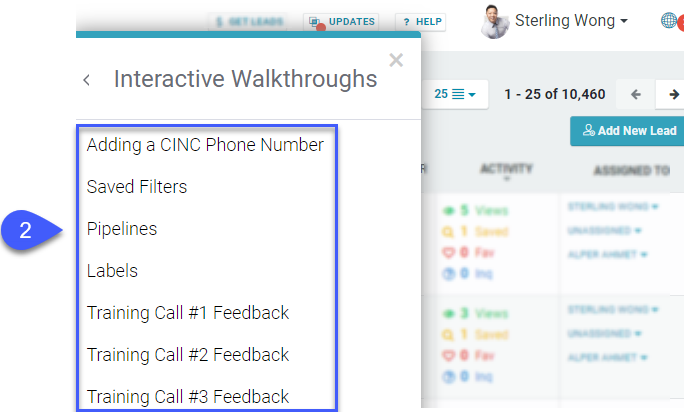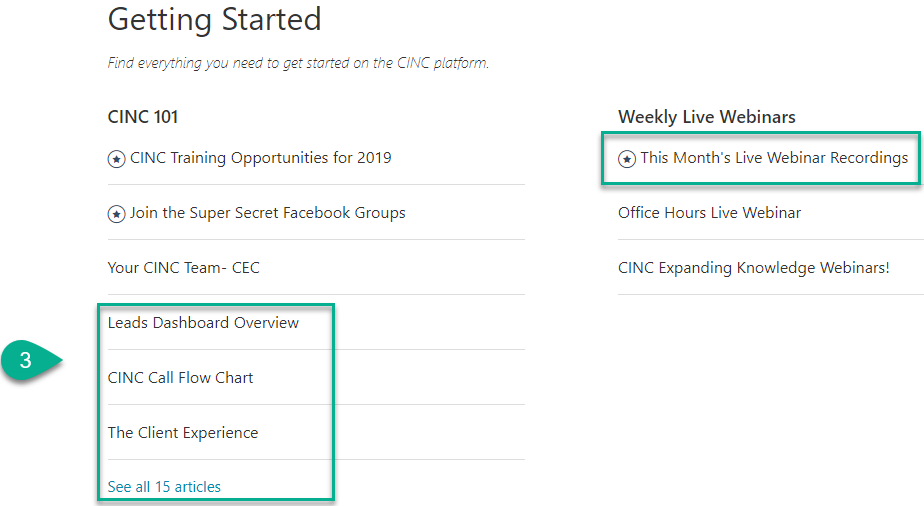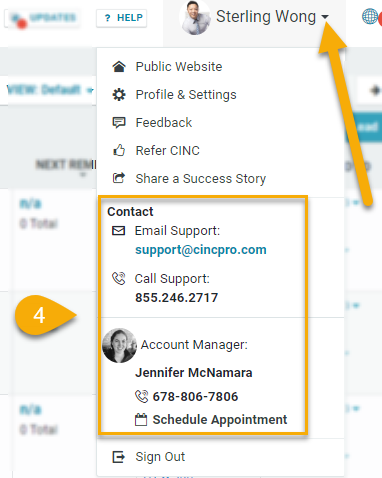No products in the cart.
How to complete the tutorial CINC CRM in 4 Steps!
Why? As a part of your mandatory core training, learning our CRM is a requirement prior to working leads. This will help you utilize the power of marketing automation, stay engaged with your clients and help you identify & convert HOT leads.
After you’re done reading the below instructions, you can login to your CINC CRM to complete the tutorial click here to log in!
Step #1 – Getting Started Checklist (see 2 images)
Step #2 – Interactive Walkthroughs (see image)
Step #3 – Getting Started (Login required)
Visit this CINC help page called Getting Started to learn the basics.
Step #4 – Contact our dedicated Account Manager for all CINC CRM related help questions or feature requests. (see image)
Now that you’re done reading these instructions, you can login to your CINC CRM to complete the tutorial click here to log in!
What is a CRM?
C-R-M stands for Customer Relationship Management. A CRM system allows sales agents to manage client relationships, information and the data associated with them in one software that is accessible online. There are many options for a CRM in today’s marketplace, however, we have chosen CINC for various reasons and it is our CRM of choice. We use CINC to manage our leads and to store data. It is not used as a lead generation tool, but a leads management tool.
10 Reasons Why You Need a CRM!
1. Enjoy a safe storage space
CRM helps sales agents to safely and centrally store their contacts, sales opportunities, activities and scheduled plans in one place, and have uninterrupted access to the database from multiple locations. Rest assured that your data won’t just get lost.
2. Plan and time-manage like a pro
CRM helps sales agents to optimize their daily schedules and prioritize tasks to make sure customers are not ignored and the key prospects are contacted on time. In fact, CRM allows sales agents to spend more time with customers, which leads to more deals closed and a stronger customer base.
3. Activity reports? – No brainer!
CRM helps sales agents to easily prepare their weekly or monthly reports for management. The process is automated and transparent, and takes just a few clicks to inform others about what sales are currently in progress.
4. Stop surfing, start targeting
CRM helps sales agents to segment data and identify valuable opportunities via criteria based selections. This prevents you from hours of cutting and pasting from various documents, or surfing in the disorganized lists of data.
5. Stay up-to-date on what’s happening
CRM offers shared calendars, document templates and e-mail integration, uniting all team members and keeping everyone up-to-date. Sharing selling patterns and processes allows sales agents to see what works best. CRM also increases communication between the sales force and sales management.
6. Show up in time for the new sale
By tracking all communication with the customers, CRM helps sales agents to know exactly when customers need to be contacted; for example, for product replacement, contract renewal, or for an upsell to a new product or service. This all increases your chances of closing a sale.
7. Rationalize your sales moves
CRM helps streamline the entire sales cycle, which results in closing deals in your sales pipeline and helping everyone in the team to reach targets faster. Since order processing and preparing quotes is automated in CRM, sales teams are able to reduce production costs and increase sales revenue.
8. Know what your customers really want
Since all the customer-related data is stored in CRM, it helps sales agents to analyze the needs of customers and even anticipate their problems – all at the right time. All this increases customer satisfaction and ensures loyalty, as well as higher profit margins.
9. Cut down on admin tasks
CRM releases the sales teams from the majority of admin tasks by reducing and even removing some of the repetitive actions that take a lot of time, but yield little profitability. CRM stores product and price details, triggers reminders for activities, and takes sales agents through the sales pipeline step by step.
10. Save money
Even though CRM systems are not cheap, they actually help you save your money! With sales agents, it is the reduction of errors (for example, in orders or quotes) that CRM can help with. Effort and cost related to correcting those errors may be much higher. CINC is an expensive tool that has already been paid for on an ongoing base for as long as you are an agent with us.
